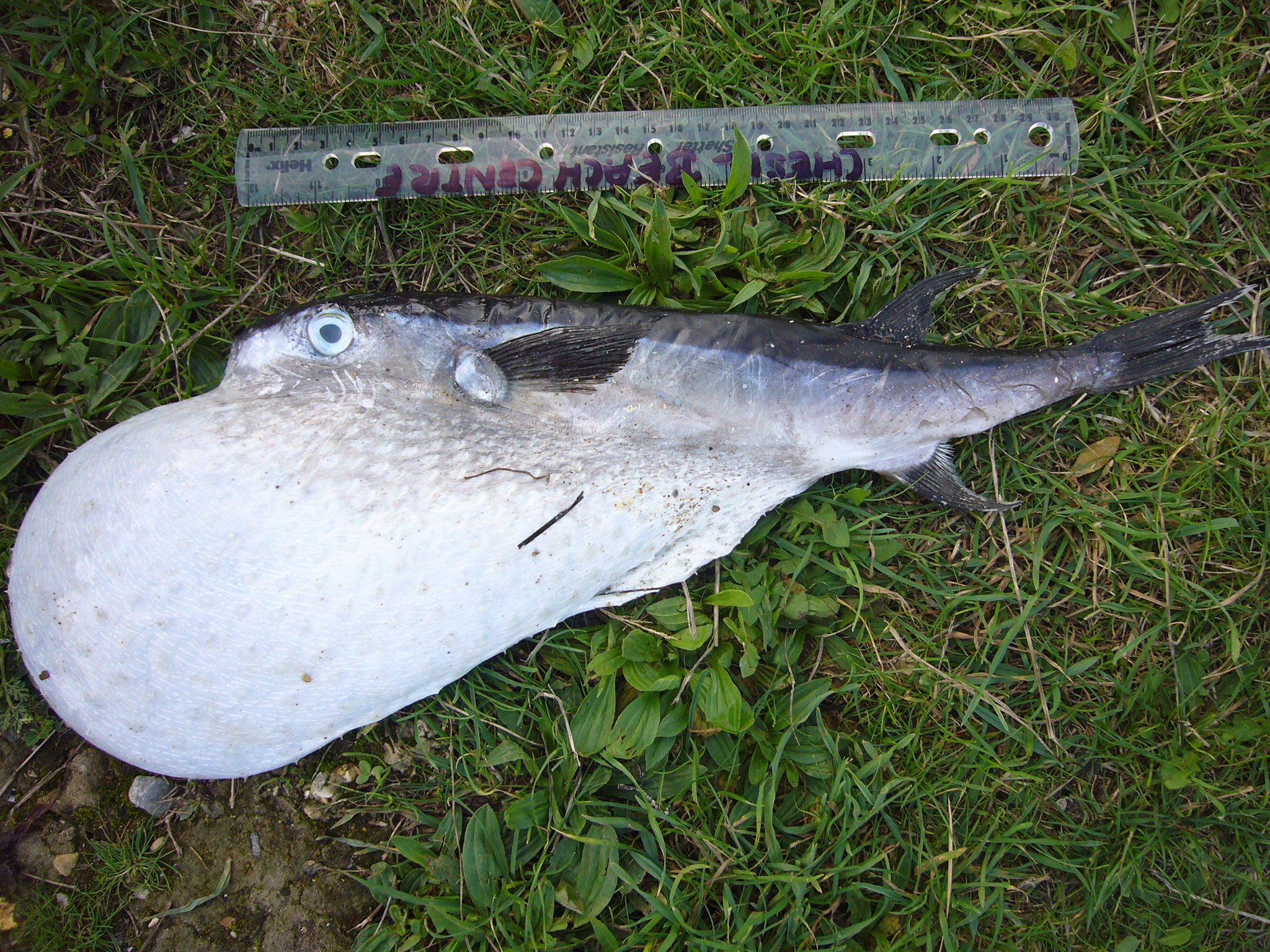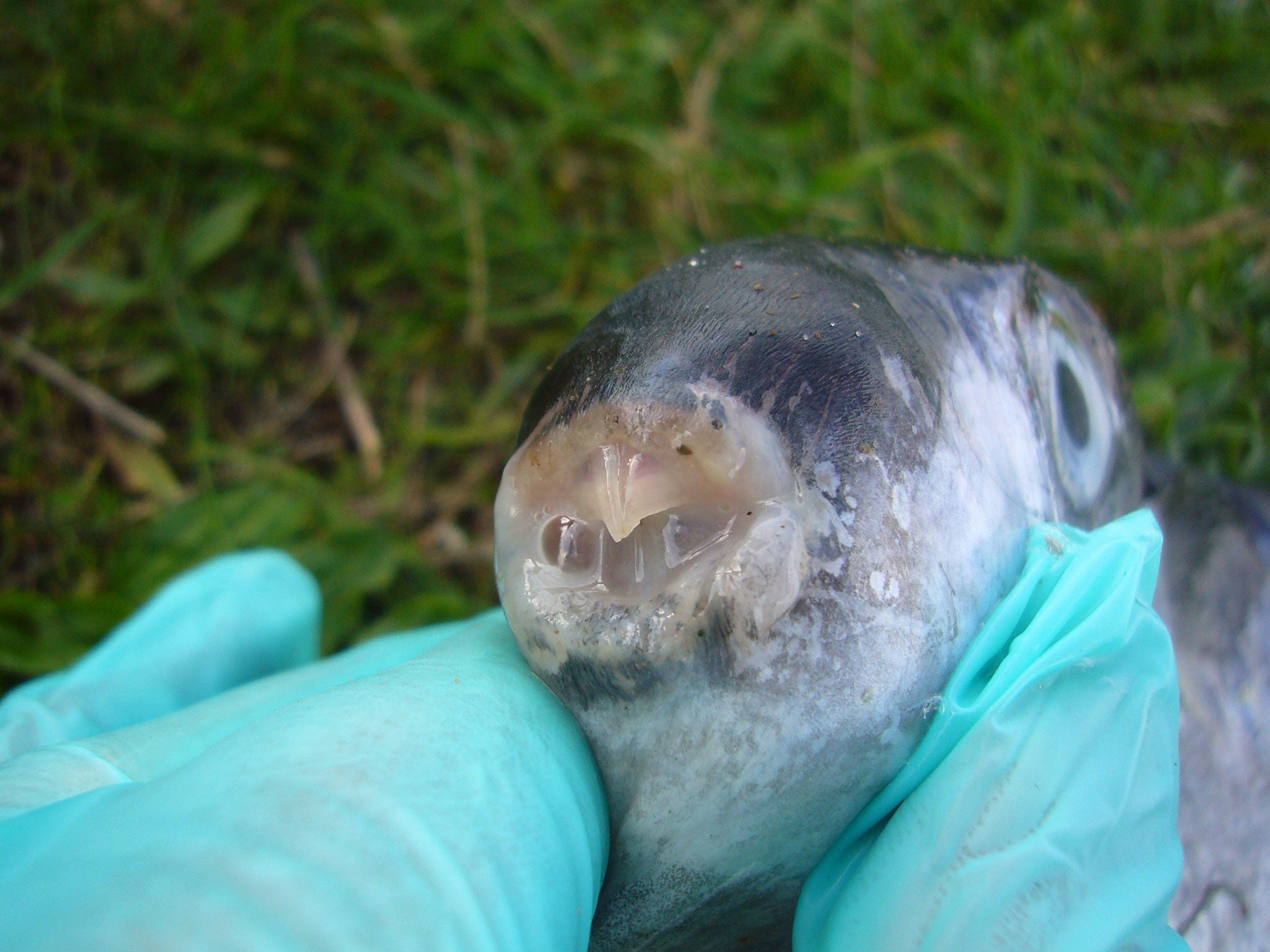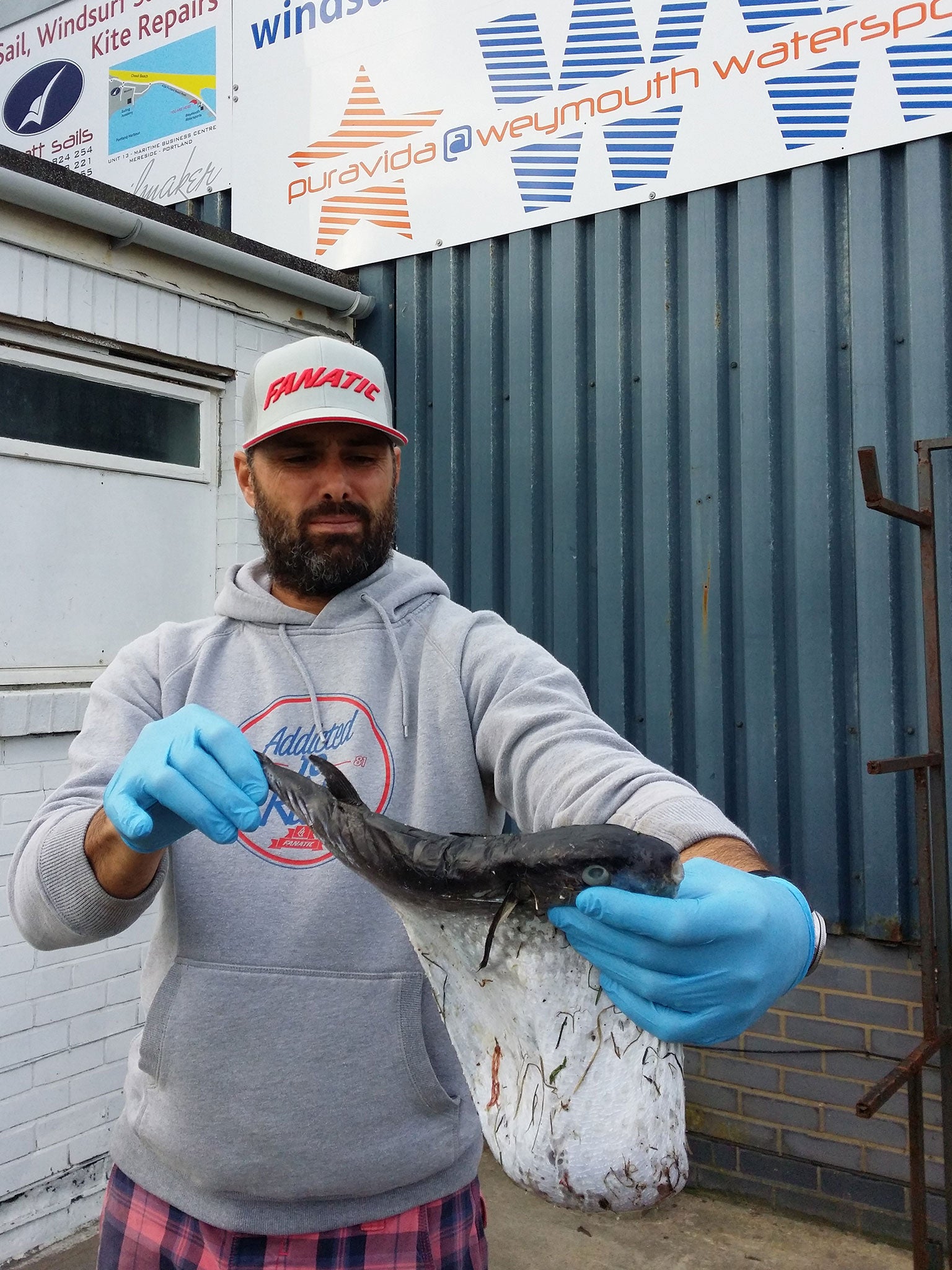Deadly oceanic pufferfish typically found in subtropical waters washes up on Dorset beach
Pufferfish was found with its stomach fully inflated

Your support helps us to tell the story
From reproductive rights to climate change to Big Tech, The Independent is on the ground when the story is developing. Whether it's investigating the financials of Elon Musk's pro-Trump PAC or producing our latest documentary, 'The A Word', which shines a light on the American women fighting for reproductive rights, we know how important it is to parse out the facts from the messaging.
At such a critical moment in US history, we need reporters on the ground. Your donation allows us to keep sending journalists to speak to both sides of the story.
The Independent is trusted by Americans across the entire political spectrum. And unlike many other quality news outlets, we choose not to lock Americans out of our reporting and analysis with paywalls. We believe quality journalism should be available to everyone, paid for by those who can afford it.
Your support makes all the difference.A deadly pufferfish usually found roaming tropical waters surprised one man when it washed up on a beach in Dorset.
The 12-inch-long, poisonous oceanic pufferfish was discovered by walker Richard Fabbri on Chesil Beach. Puzzled by its inflated stomach, Mr Fabbri took it into Marc Smith at the Chesil Beach Centre on Saturday for help identifying it.
Mr Smith said oceanic pufferfish are usually found in tropical and sub-tropical oceans, but are “occasional visitors” to the south-west coast of England in late summer and autumn.
He told The Independent: “I couldn’t work out what it was straight away because it was so unusual - there has only ever been a small number of that species of pufferfish ever recorded arriving here."
He said the fish tend to arrive in Cornwall every two to five years when they "wander in" on warmer water.
The inflated fish are known for their fused teeth, creating a powerful beak used to feed on crustaceans.

When under threat, the fish fill their bodies with water or air in a bid to ward off predators. Their toxin has no known antidote, making them extremely poisonous.
As well as puffing themselves up in the sea, the creatures can also puff up in the predator’s throat, causing spines from their stomach to become lodged in the throat wall.

Mr Smith said: “The oceanic pufferfish are also quite toxic if they are eaten because their internal organs contain a neurotoxin which is similar to that released by the pufferfish eaten in Japan. If a human ate one without realising what it was, it would be deadly. Chefs in Japan have to have a special license to prepare them.”
Mr Smith said this particular fish was in good condition and did not appear to have been attacked. Staff at the centre are unsure as to how it died.
“What was interesting is the fish was there all day and nothing went near it – birds and gulls would usually attack something lying there quite quickly,” he added. “Because it’s so rare, you wouldn’t think they would have evolved to be wary of it.”
Join our commenting forum
Join thought-provoking conversations, follow other Independent readers and see their replies
Comments